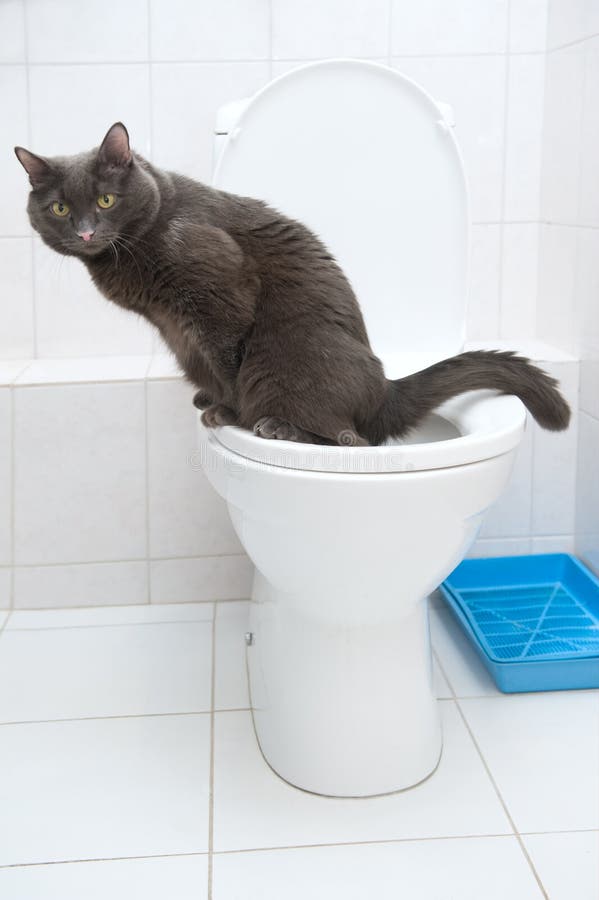The Consequences of Flushing Cat Poop Down Your Toilet - Safeguard Your Plumbing
The Consequences of Flushing Cat Poop Down Your Toilet - Safeguard Your Plumbing
Blog Article
Nearly everybody has his or her own views about Don’t flush cat feces down the toilet.

Introduction
As feline proprietors, it's essential to be mindful of exactly how we throw away our feline friends' waste. While it may appear hassle-free to purge feline poop down the bathroom, this method can have damaging repercussions for both the atmosphere and human wellness.
Alternatives to Flushing
Thankfully, there are much safer and more accountable methods to throw away pet cat poop. Take into consideration the complying with options:
1. Scoop and Dispose in Trash
The most common technique of taking care of pet cat poop is to scoop it right into a naturally degradable bag and throw it in the garbage. Make sure to utilize a devoted litter inside story and dispose of the waste without delay.
2. Usage Biodegradable Litter
Choose eco-friendly feline clutter made from materials such as corn or wheat. These clutters are environmentally friendly and can be securely dealt with in the garbage.
3. Hide in the Yard
If you have a yard, take into consideration hiding cat waste in an assigned location far from vegetable yards and water sources. Make sure to dig deep adequate to avoid contamination of groundwater.
4. Set Up a Pet Waste Disposal System
Buy a pet waste disposal system especially developed for feline waste. These systems utilize enzymes to break down the waste, decreasing smell and ecological impact.
Wellness Risks
Along with ecological problems, flushing cat waste can also present health and wellness dangers to people. Cat feces may contain Toxoplasma gondii, a parasite that can trigger toxoplasmosis-- a possibly severe illness, specifically for pregnant women and individuals with damaged immune systems.
Ecological Impact
Flushing feline poop presents harmful pathogens and parasites into the supply of water, posturing a substantial risk to aquatic communities. These pollutants can adversely impact aquatic life and concession water top quality.
Conclusion
Liable animal ownership expands beyond providing food and shelter-- it additionally entails proper waste administration. By refraining from flushing cat poop down the commode and opting for alternate disposal approaches, we can minimize our ecological footprint and shield human health and wellness.
Why Can’t I Flush Cat Poop?
It Spreads a Parasite
Cats are frequently infected with a parasite called toxoplasma gondii. The parasite causes an infection called toxoplasmosis. It is usually harmless to cats. The parasite only uses cat poop as a host for its eggs. Otherwise, the cat’s immune system usually keeps the infection at low enough levels to maintain its own health. But it does not stop the develop of eggs. These eggs are tiny and surprisingly tough. They may survive for a year before they begin to grow. But that’s the problem.
Our wastewater system is not designed to deal with toxoplasmosis eggs. Instead, most eggs will flush from your toilet into sewers and wastewater management plants. After the sewage is treated for many other harmful things in it, it is typically released into local rivers, lakes, or oceans. Here, the toxoplasmosis eggs can find new hosts, including starfish, crabs, otters, and many other wildlife. For many, this is a significant risk to their health. Toxoplasmosis can also end up infecting water sources that are important for agriculture, which means our deer, pigs, and sheep can get infected too.
Is There Risk to Humans?
There can be a risk to human life from flushing cat poop down the toilet. If you do so, the parasites from your cat’s poop can end up in shellfish, game animals, or livestock. If this meat is then served raw or undercooked, the people who eat it can get sick.
In fact, according to the CDC, 40 million people in the United States are infected with toxoplasma gondii. They get it from exposure to infected seafood, or from some kind of cat poop contamination, like drinking from a stream that is contaminated or touching anything that has come into contact with cat poop. That includes just cleaning a cat litter box.
Most people who get infected with these parasites will not develop any symptoms. However, for pregnant women or for those with compromised immune systems, the parasite can cause severe health problems.
How to Handle Cat Poop
The best way to handle cat poop is actually to clean the box more often. The eggs that the parasite sheds will not become active until one to five days after the cat poops. That means that if you clean daily, you’re much less likely to come into direct contact with infectious eggs.
That said, always dispose of cat poop in the garbage and not down the toilet. Wash your hands before and after you clean the litter box, and bring the bag of poop right outside to your garbage bins.
https://trenchlesssolutionsusa.com/why-cant-i-flush-cat-poop/
We had been shown that report on Don’t flush cat feces down the toilet through an associate on our other site. Sharing is nice. Helping others is fun. I praise you for your time. Visit us again soon.
Free Estimate Report this page